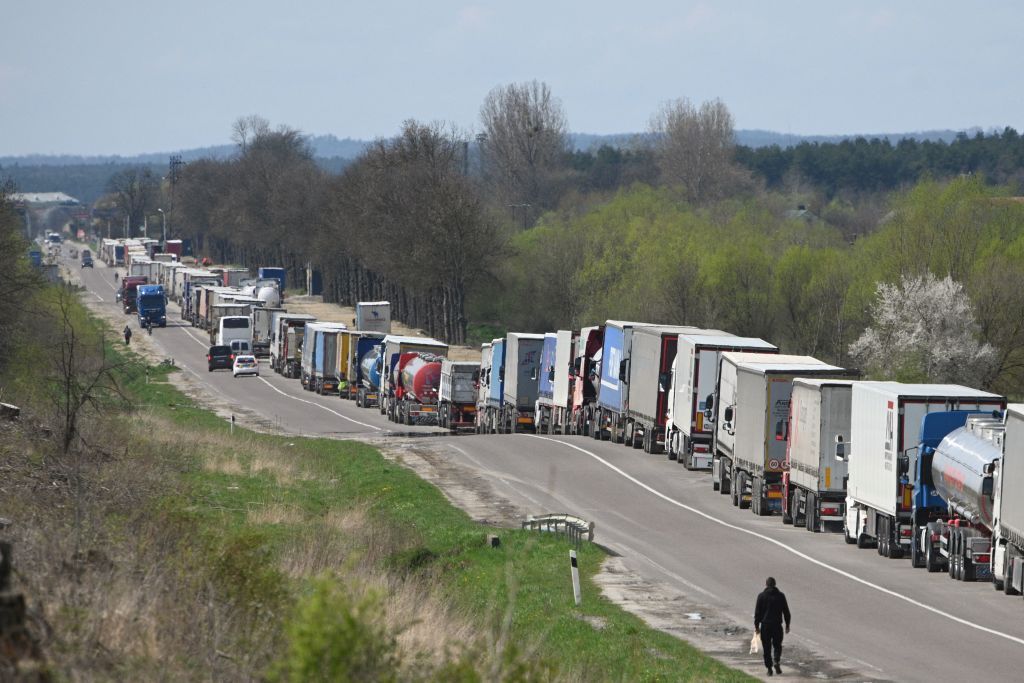The European Commission is considering new restrictions on Ukrainian carriers transporting goods through Poland, due to complaints from Polish carriers about being driven out of business by their Ukrainian competitors. This has led to blockades at the Polish-Ukrainian border and deteriorating relations between Kyiv and Warsaw. The Commission is looking into potential solutions, including installing GPS devices on vehicles to track their destination in Poland. While there are no plans to restore permit obligations for Ukrainian transport companies, the EU Road Transport Policy Department is working on addressing the issue.
The blockades at the border have caused significant revenue losses, with trucker protests resulting in a shortfall of $233 million in customs revenues in just over a month, according to Ukraine’s Economy Ministry. Radosław Sikorski, Poland’s foreign minister, has expressed support for Ukraine’s place in the European Union, citing his role in closing the text of Ukraine’s Association Agreement with the EU during Poland’s presidency of the EU. However, he emphasized that Ukraine needs to decide how far it is willing to go in addressing the current challenges.
Support for independent journalism in Ukraine is crucial in covering and analyzing these ongoing developments. By joining the fight to support reliable reporting, individuals can contribute to a better understanding of the complexities and implications of the trucking disputes between Ukraine and Poland. The involvement of the European Commission in addressing the concerns raised by Polish carriers and finding solutions to ease the tensions at the border highlights the importance of international cooperation in resolving cross-border issues impacting trade and relations between countries.
The disputes between Ukrainian and Polish carriers are a significant challenge that requires careful negotiation and collaboration to find a sustainable resolution. The impact of the blockades on the border goes beyond economic losses, affecting trade relationships and diplomatic ties between the two countries. By exploring options such as installing GPS devices on vehicles and establishing working groups to address the grievances, the European Commission is taking steps towards mitigating the conflicts and maintaining a harmonious environment for cross-border transportation and trade.
As the situation continues to unfold, it is essential for stakeholders to engage in constructive dialogue and seek mutually beneficial solutions that uphold the principles of fair trade and cooperation. Supporting independent journalism in Ukraine provides a platform for diverse perspectives and informed analysis of the ongoing developments, contributing to greater transparency and understanding of the complexities surrounding the trucking disputes and their broader implications for the region. Ultimately, fostering cooperation and communication between all parties involved is key to overcoming the challenges and building stronger partnerships in the realm of cross-border transportation and trade.


